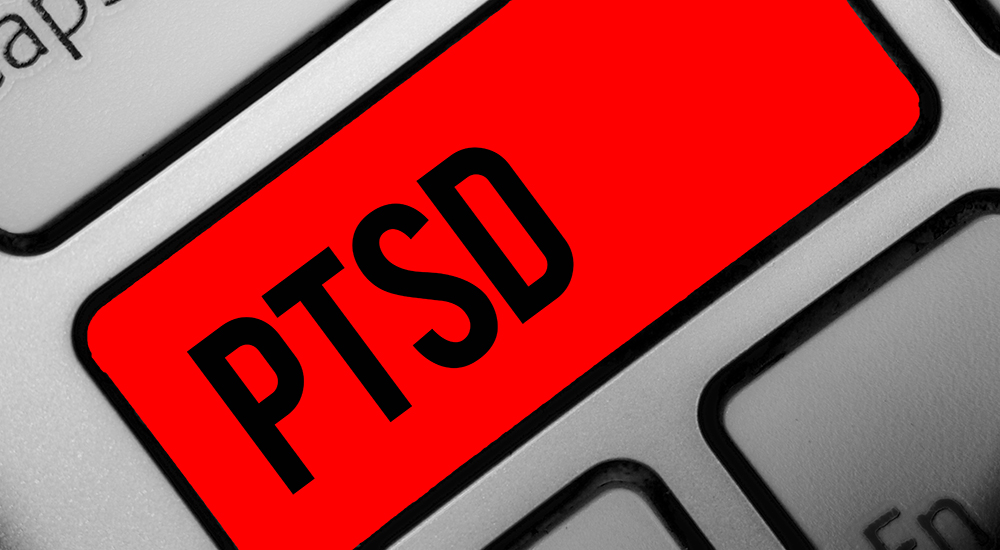“A few years ago I heard about the treatment from my friend in Washington state. I went on the computer and I checked a few things out, and I thought, ‘Why not? It’s time that you do something.’”
For Jerry, that time came 48 years after he had returned from Vietnam…
“Bullets are flying everyplace…”
“It was quite an experience coming back from ‘Nam, and I could tell I had changed an awful lot. And I think the biggest thing in my behavior was the fact that I was so jumpy. I would wake up in the middle of the night, and I’m in the middle of Vietnam, and bullets are flying everyplace, and my bed is ringing wet.”
“What they didn’t know is I was scared of myself.”
Something was wrong. He didn’t know what it was or what to do about it. And Jerry didn’t want to jeopardize his career in the military by speaking up. He went on to finish two tours in Korea, then was stationed in Germany where he met his future wife and started a family. “I just felt that if I said there’s something wrong with me the Army wouldn’t need me.”
Instead of asking for help, Jerry buried himself in his work. “I was working around the clock. I was trying to control my mind, and I was trying to block it. I was in control most of the time.”
But he also lost control. Stupid mistakes felt intolerable, and they could easily set him off. “I can talk like a sailor, and in talking like a sailor, I could take your head off and put it in your lap, and you’d never know it.”
Loose Cannon
These types of outbursts affected his work-life. He later learned that his colleagues didn’t like to be around him because he was too unpredictable, too volatile. One called him a loose cannon, another told him years later that people were afraid of him. “What they didn’t know is I was scared of myself.”
Time passed. Jerry’s two sons grew into men. And more recently, his beloved wife became ill and passed away. For all those years Jerry had wanted to ask for help, but he didn’t know where to go. He couldn’t trust anyone.
Then one day a friend told him about the treatments at the VA. Treatments for PTSD. Eager to get help, but still skeptical, Jerry went in for an appointment.
“She was just that good.”
“I’ll tell you right now, as I sit here, when I walked in that room and saw that petite little thing sitting there, I said there is no way in hell this young lady has any clue about what I’ve been through, what I’ve done, and she can’t help me. I feel like an ass now but it didn’t take long for me to change my mind. It didn’t take long. Within 30 minutes I knew I wanted to come back for my next appointment. I could have probably stayed there the rest of the week and talked to her. She was just that good. She was ready for me. I wasn’t ready for her, but she made me ready. She was good.”
Jerry finished his therapy, an evidence-based therapy called Prolonged Exposure, in nine weeks.
“I felt that the treatment helped me in the fact that I can control myself a lot better. I control my anger. I can do a lot of things that I couldn’t do before. I still have moments where I don’t know, something snaps or something build’s up or whatever [but] I accept life a lot easier. I’m more tolerant of people.”
“I’ll just say it this way. It takes a lot to piss me off. I’m so proud of that.”
Here’s a five-minute video of Jerry sharing his story.
Read more about Veterans’ experience with PTSD Therapy Here.
To hear more Veteran’s talk about their experiences with PTSD and PTSD treatment, visit AboutFace.
For more information on PTSD visit the National Center for PTSD website, www.ptsd.va.gov/. This site offers resources such as:
- PTSD Coach Online and the award-winning PTSD Coach mobile app, which provide self-help symptom-management tools. The app is always with you when you need it.
About the author: Vicky Bippart is the Producer/Director for the VA’s National Center for PTSD, focusing on the Center’s award-winning AboutFace program. She has also been recognized with numerous awards for her work in documentaries.
Topics in this story
More Stories
Larry Trujillo lost 44 pounds and improved his relationship with food during the 90-day TeleMOVE! telehealth program.
The Dayton VA Medical Center released its March 2025 Good News Report, spotlighting compassionate care, special recognitions, and life moments shared by Veterans and staff.
Each year, I return to honor my old corpsman's memory and reflect on serving together.






I applied for vocational rehab_ independent living I’m 100 sc for PTSD and 60 for physical disabilities . But I was denied. I just would want something minor like small woodworking. Art or something I can do to enjoy and get like therapy for my mental state. But I was denied. I was told I can buy everything on my own
They told me I had PTSD but not enough to worry about. Well, it doesn’t get any better over time. Only had 1 session with psychologist over 8 yrs ago. I’m only 10% disability. Live 45 min. One way to the VA in Indiana. I live in Ohio. I’m 1 1/2 hours from the next VA in Dayton, Oh. Drive time and waiting Time is a real hassle. At least 3hrs between lab and Dr. appointment. What’s a vet to do. I doubt get any mileage compensation because I’m not 30% disability or greater. That’s about 3 1/2 gallons of fuels. At about $2.75 a gallon, you do the math. Plus visit co-pay. Going to seriously check out the Choice program. Be better than all the running and VA ratrace. I served like all other vets. Now , take better care of us. All should be equil. As you can see I’m not to impressed.
I suffer from PTSD, terrible. One day I am fine and the world is mine. Other days, I am afraid to get out of bed, I look under the bed. I stand with my back against the wall. I have panic attacks, which the VA will give me no medicine to subdue. I am in my 60’s now. I see no way out. everytime I see a therapist, she or he spring boards to a better job. I firmly believe, unless the VA gives a veteran a medical card, to see a doctor that will help. the success stories will be limited to a few….Help Us who suffer. sp/4 Joseph Weaver Delaware
Joseph, we appreciate your honest feedback. We have read your comment and will be forwarding it to the Wilmington VAMC. Your VA primary care team at the facility is ultimately responsible for managing all aspects of you care, including making professional and medical assessment that a particular treatment or test is medically appropriate. Please realize that you do still have options. If you are not satisfied with the services that you are receiving, all VA Medical Centers have Patient Representative/Advocate, whose job is to help make sure you are satisfied with your care https://www.wilmington.va.gov/patients/customerservice.asp. If the Patient Advocate or Respresentative does not help, you can then contact the VA Medical Center Director’s Office. Visit here https://www.ptsd.va.gov/public/treatment/therapy-med/index.asp for more information on the treatment options available to Veterans with PTSD. Effective treatments for PTSD exist, please talk to your provider to determine the best treatment approach to your situation.
It was the manly….macho thing to do by not acknowledging it. It made you appear weak or with mental illness to talk about it. I was fortunate after 51 years since Nam I finally got a disability pension awarded last year. It was a rough life since Nam, but also going for help for many years, I came out of it on the other side. I am going on 75 and sooooo glad to be here with my 7 kids and 12 grand kids.
I can relate to covering up problems you may experience that you hide while still active duty status , I went thru the same scenario and once I retired I started working on my issues and can see the light at the end of the tunnel.
Very informative, thank you for sharing.
Necesito el record médico, llevo diez años solicitando. Victorsierra052@Gmail.com
Spanish: Víctor, llame gratis a VA al 1-800-827-1000 para identificar la ubicación actual de registros de salud específicos. Para toda la información sobre los registros militares, vaya a http://www.archives.gov/http://www.archives.gov/veterans/military-service-records/medical-records.html.
English: Victor, call VA toll free 1-800-827-1000 to identify the current location of specific health records. For all information about military records, go to http://www.archives.gov/http://www.archives.gov/veterans/military-service-records/medical-records.html.
What about the kids and wife? Home and can’t get help. Shot him self twice , the last one I could not save him. I put up with night terrors, broken ribs,huge scar on my face. His drunken rampages JUST TO NAME A FEW. BUT I DON’T QUALIFY FOR THE MONEY YOU GIVE TO WIDOWS. He shredded EVERYTHING WE HAD, EVERYTHING. Our kids grew up in constant fear as I did. WHY DON’T YOU TAKE CARE OF WHAT YOU LEFT BEHIND.
Adrianna, first off thank you so much for your loved one’s service to our country. We are sorry to hear about your situation. We encourage you to visit https://www.mentalhealth.va.gov/docs/counseling-services.pdf for more information on counseling services for Veterans and their families. Additionally, the Vet Center Combat Call Center is a 24/7 call center for combat Veterans and their families to talk about their military experience or issues about readjustment to civilian life: 1-877-WAR-VETS. More helpful resources can be found here https://www.ptsd.va.gov/public/family/resources_family_friends.asp.
The eligibility requirements for DIC are here: https://benefits.va.gov/compensation/types-dependency_and_indemnity.asp.
When administering benefits and services, VBA and VHA are bound by the laws your elected representatives write. Those laws tell us how to administer VA benefits and services.